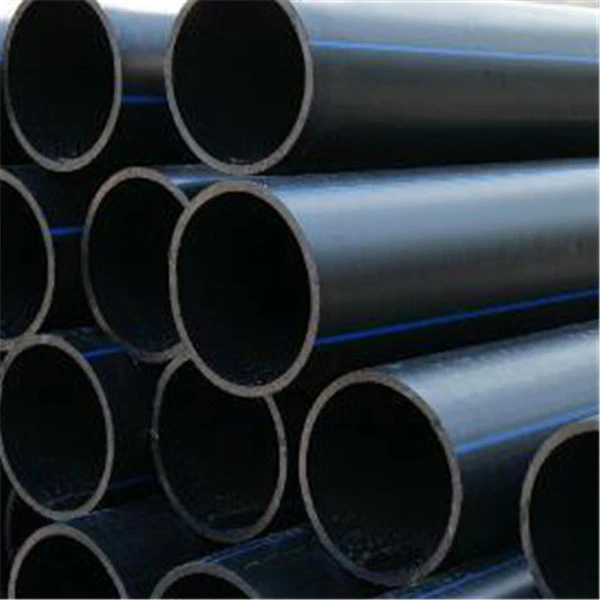12月 . 12, 2024 21:52 Back to list
pvc water supply pipe
The Role of PVC Water Supply Pipes in Modern Infrastructure
In the ever-evolving landscape of construction and infrastructure, the materials we choose play a crucial role in the durability, efficiency, and overall effectiveness of water supply systems. Among the various options available, PVC (Polyvinyl Chloride) pipes have emerged as a leading choice for water supply applications. This article explores the advantages of PVC water supply pipes, their applications, and the ongoing innovations in this industry.
Understanding PVC Pipes
PVC pipes are made from a synthetic plastic polymer known as polyvinyl chloride. This material is not only lightweight but also possesses remarkable resistance to corrosion, making it suitable for transporting potable water. The production process of PVC involves polymerization, which results in a robust and flexible material capable of withstanding high pressures. These properties contribute to PVC pipes' growing popularity, particularly in municipal water supply systems and household plumbing.
Advantages of PVC Water Supply Pipes
1. Corrosion Resistance One of the most significant benefits of PVC pipes is their resistance to corrosion. Unlike metal pipes that can rust and degrade over time, PVC maintains its integrity when exposed to water and various chemicals, ensuring a longer lifespan and reducing maintenance costs.
2. Lightweight and Easy to Install PVC pipes are considerably lighter than metal or concrete alternatives, which simplifies transportation and installation. This characteristic not only reduces labor costs but also enhances work site safety, as handling heavy materials can lead to accidents.
3. Cost-Effectiveness The affordability of PVC pipes makes them an attractive option for water supply systems. The initial investment is lower than that of steel or ductile iron piping, and given their durability and low maintenance requirements, they provide excellent long-term value.
4. Non-Toxicity PVC is regulated under strict standards to ensure it is safe for potable water applications. This non-toxic property makes PVC pipes an ideal choice for modern drinking water systems, providing peace of mind to consumers regarding the safety of their water supply.
5. Resistance to Biological Growth PVC’s smooth interior surface inhibits the growth of algae, bacteria, and other microorganisms. This characteristic is particularly important in maintaining water quality and safety, making PVC pipes suitable for a variety of environments.
pvc water supply pipe

Applications of PVC Water Supply Pipes
PVC water supply pipes are versatile and find applications in various sectors. They are widely used in
- Residential Plumbing Homeowners increasingly choose PVC pipes for supplying water to faucets, showers, and appliances. Their lightweight nature and ease of installation make them a popular choice for new constructions and renovations.
- Municipal Water Systems Many cities utilize PVC pipes in their water distribution networks due to their capacity to handle large volumes of water efficiently, coupled with their resistance to corrosion and chemicals.
- Irrigation Systems Agriculture relies heavily on PVC pipes for irrigation purposes, offering farmers a reliable and efficient method to transport water across fields.
- Industrial Applications Industries requiring a robust and reliable water supply often turn to PVC pipes for their strength and resilience against various substances.
Innovations in PVC Technology
Ongoing research and development in PVC technology are leading to exciting innovations. Enhanced formulations that improve the thermal resistance of PVC are being developed, making these pipes suitable for a wider range of temperatures. Additionally, advancements in manufacturing techniques are yielding even more sustainable production processes, minimizing the environmental impact of PVC.
In summary, PVC water supply pipes stand at the forefront of modern plumbing solutions, offering numerous advantages over traditional materials. Their durability, cost-effectiveness, and safety make them an indispensable part of our infrastructure. As technology continues to advance, the future looks promising for PVC, ensuring its place as a staple in water supply systems for years to come.
-
HDPE Natural Sheet: Durable, Food-Grade & Versatile Plastic Solutions
NewsAug.27,2025
-
Durable Glossy PVC Rigid Sheet | Premium High-Shine Panels
NewsAug.26,2025
-
Durable PP Rigid Sheet: Lightweight, Chemical Resistant Solutions
NewsAug.21,2025
-
PVC Grey Sheet for Extraction: Chemical Resistant & Durable
NewsAug.19,2025
-
Durable PVC Pipe Fittings for Plumbing & Irrigation Needs
NewsAug.18,2025
-
HDPE Steel Belt Reinforced Spiral Corrugated Pipe | High Strength
NewsAug.17,2025

